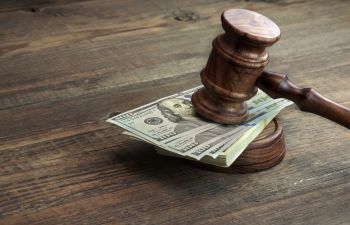Recovery After Bankruptcy

Bankruptcy is a painful process and can make you doubt you will ever get back on your feet. While bankruptcy is something that should always be considered the last resort, there are times when it is the best decision to make. The good news is that there is life after bankruptcy. Here are some steps to take as you begin to rebuild after bankruptcy.
Know Where You Stand
If you file Chapter 7, check your credit reports 3-4 months after your bankruptcy is discharged. Look for any inaccuracies and have them corrected. Be sure to request reports from all three credit bureaus. You are entitled to a free credit report from all three bureaus, Experian, Equifax and TransUnion, each year. Make sure all the credit accounts covered in the bankruptcy are labeled as discharged and have no outstanding balances.
If you file Chapter 13, your bankruptcy will not be discharged until the end of your repayment period. In this case, check your credit 3-4 months after your bankruptcy filing. Again, look for mistakes in your credit report and have any errors corrected. Also, check your credit score when you check your credit reports.
Avoid Repeating History
No one sets out with the plan of filing for bankruptcy protection, but sometimes circumstances make it a necessity. After bankruptcy, work with a credit counselor to learn how to set up a budget, evaluate your spending and saving habits and develop a long-term credit rebuilding plan. Once your budget is in place, consider taking out a small loan through your local credit union called a credit builder loan. These loans are typically around $1000.
This loan is placed in a savings account where it will earn interest but cannot be withdrawn until the loan is repaid. When the loan is repaid, you can then withdraw the money, possibly with some of the accrued interest. Make sure you pay each installment payment on time. These payments will be reflected on your credit report, helping raise your credit score.
It may seem bleak when you first file for bankruptcy protection, but there is life after bankruptcy. By using the bankruptcy as a learning tool and as a fresh start, you can soon be on your way to a brighter future.
If you are considering bankruptcy but are unsure of your next steps, call the offices of Gingold & Gingold today at (404) 685-8800 to schedule your free consultation.







